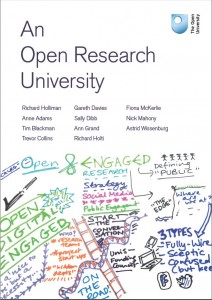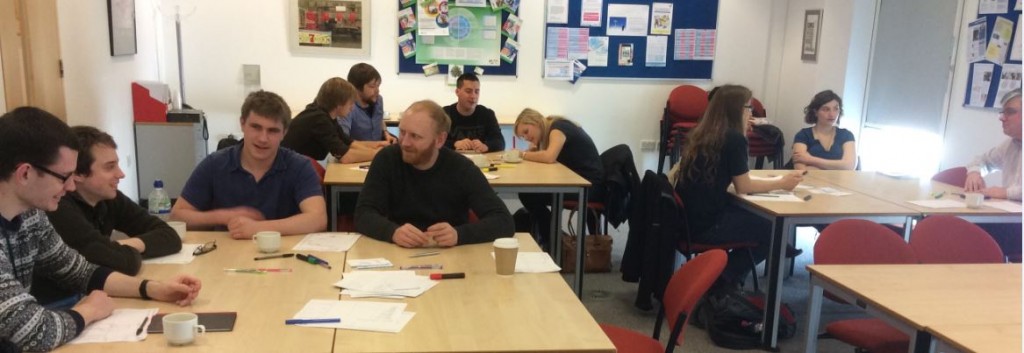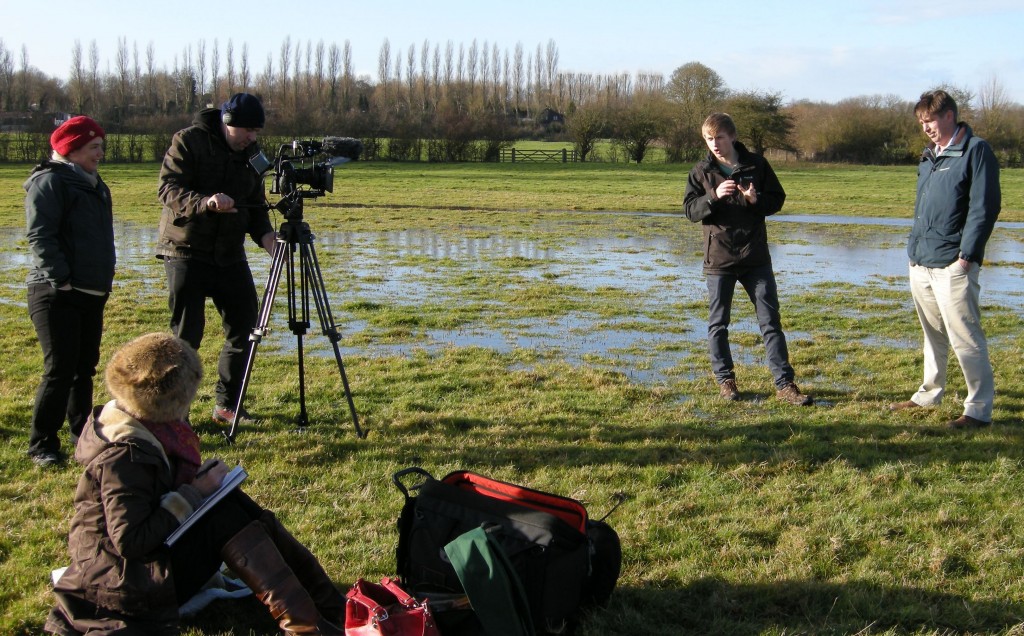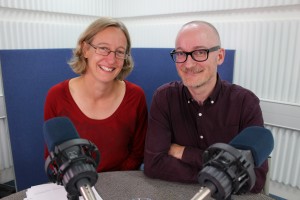Engaging Research: developing productive partnerships with end-users
Richard Holliman and Clare Warren
Researchers in the UK are taking on new roles and responsibilities as requirements for generating and evidencing social and economic impacts from research increase.
Within this wider context, culture change programmes have identified learning as an important driver of change (Holliman and Warren, in press).
Thanks to funding from NERC through an Innovation Award, we are offering NERC-funded postgraduate researchers from the CENTA Doctoral Training Partnership the opportunity to turn your research into ‘engaged research’. Through this training you will work on identifying and developing productive partnerships with your research end-users.
What, you might ask, is engaged research? At the Open University we define this as:

An open research university (Holliman et al. 2015a). Design: Peter Devine. Image: Beck Pitt.
“Engaged research encompasses the different ways that researchers meaningfully interact with various stakeholders* over any or all stages of a research process, from issue formulation, the production or co-creation of new knowledge, to knowledge evaluation and dissemination” (Holliman et al., 2015a, p. 3).
* Stakeholders may include end-users, user communities, and members of the public or groups who come into existence or develop an identity in relationship to the research process.
Engagement and Communication
Over the five days of this free (all expenses paid) residential course you will explore conceptual issues related to two main themes:
- Engaged research: who are the end-users for your research or who could they be? How could you work with them in ways that are meaningful for them? When and how should you engage with your end-users in the research cycle? How will you know the engagement was productive for you and the various participants?
- Communication: how do you best present your work in the public sphere to encourage end-users to work with you? How can you create communities who connect with your research over time (Collins, et al. 2015)?

Supporting NERC-funded postgraduate researchers through the CENTA Doctoral Training Partnership. Photo: Gareth Davies.
Over the course of the week you will also develop and practise new skills in digital communication, such as creating an online profile, mediating scientific information for different audiences (Holliman, 2007), working with recording equipment, producing pieces-to-camera and editing footage to produce web videos about the social and economic impacts of your research.
You will explore how the principles of engagement can apply to your research, develop skills in evaluating plans for engaged research, and reflect on how you can evidence the skills gained through engaged research and communication on your CV.

Filming an interview: Alan Radbourne, Loughborough University with Professor David Gowing, The Open University.
The results of previous workshops, involving NERC-funded postgraduate researchers, included a number of high-quality short films and other outputs (e.g. Holliman et al., 2015b).
You can view these at the following location, or select one of the examples below: Engaging with End-Users Playlist.

One of the previous workshops, conducted in 2014. The photo includes NERC-funded postgraduate researchers and three of the training team. Photo: Richard Holliman.
I have used the experience in several ways such as I did a camera interview which was then added to the University website as a virtual open day piece. […] The people undertaking the interview commented on how they could tell I was experienced in giving interviews! […] I feel that I am much more conscious of what I am ‘giving’ to my collaborators, and how they will use the outputs of my research. With this in mind, this has enabled me to tailor my methodological design to make sure that my results are transferable to my end users. (Postgraduate Researcher, 11/04/16)
Booking your place
We will be running three residential workshops for NERC-funded CENTA postgraduate researchers at the Open University’s Walton Hall Campus in Milton Keynes, the first of which is fully booked. Accommodation will be provided (free of charge) within walking distance of the campus.
The dates for the workshops where we still have places open are:
- 13th—17th March 2017
- 27th—31st March 2017
We can accommodate up to 10 researchers per workshop. You must attend all five days of the workshop.
Places will be allocated on a first come, first served basis. Please use the following link to register: Engaged Research Training Registration.
The deadline for registration is: 9th February 2017.
Please discuss and agree your participation on this course with your supervision team and/or line manager before you register for a course.
References
Collins, T., Grand, A., Holliman, R., Davies, G., McKerlie, F. and Giorgi-Coll, G. (2015). The digital attributes of engaged researchers. Engaging Research Blog. Online: http://weblab.open.ac.uk/dper (accessed 27 September 2016).
Holliman, R., Adams, A., Blackman, T., Collins, T., Davies, G., Dibb, S., Grand, A., Holti, R., McKerlie, F., Mahony, N. and Wissenburg, A. (2015a). An Open Research University: Final Report. The Open University: Milton Keynes. Available from: http://oro.open.ac.uk/44255 (accessed 27 September 2016).
Holliman, R., Lawson, C., Moles, J., Parkes, B., Radbourne, A. and Reid, K. (2015b). Engaging Environmental Research: developing productive partnerships with end-users. Engaging Research Blog. Online: https://www.open.ac.uk/blogs/per/?p=5653 (accessed 27 September 2016).
Holliman, R. and Warren, C.J. (2017; in press) ‘Supporting future scholars of engaged research’, Research for All: Universities and Society, 1(1), pp. 168-184.
Holliman, R. (2007). Reporting environmental news: newspapers in the digital age. Frontiers in Ecology and the Environment, 5(5) pp. 277–8. Online: http://oro.open.ac.uk/7804 (accessed 27 September 2016).
The professional development workshops discussed in this paper were funded by NERC through an Added-Value Activities in Innovation Award. We are particularly grateful to Dr James Bendle, Sarah Kinahan and Pauline Bell for their help and support in securing the funding.

